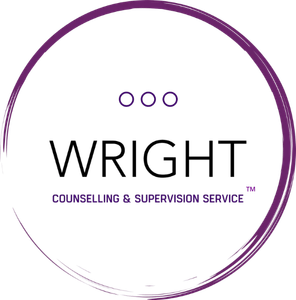

Speaking Personally
Speaking Personally
I think that it’s important that I share this information because when finding someone to work with; you need to know whether they’re the right fit. So im going to share a few thing about myself, being open and honest about some of my past expereinces.
Its not customary for counsellors to offer too much in the way of personal experiences. However, I've recieved some positive feedback from readers expressing a need for this when finding a counsellor that is suitable to connect with. Since then, I have made some adjustments.
I have given an account of my experiences through telling a story and much of some of the more tense aspects, I have attempted to make slightly light-hearted, with tones of humour. In no way is it to devalue the experiences of anyone, but its more to show that with how far I’ve come and with overcoming much of what I describe, I am able to see things a little differently and therefore make light of some of the aspects.
Image Align

Lets Start Here...
A counsellor’s life isn’t any easier than anyone else’s. In fact, a counsellor who has experienced difficulties and has gone on a journey of their own are more likely to offer a deeper level of insight and empathic understanding. It’s not about being all together. It’s about being real, and in my experience, that’s where the growth is.
I was 14 when I became interested in counselling. I remember walking through the school library, drawn to a book called “Introduction to Psychology” and below is an image of the exact book. After seeing this book, everything changed. I remember navigating through a dark period in my life but like flipping a switch, the world instantly became, brighter. I “forgot” to return the book…
It was an unusual age to be interested in counselling, but when the opportunity presented itself, I took it. Since a young age, I’ve been preoccupied with observing and thinking, feeling the calming effects of just drifting away into my own world, especially at school. School was where I had to be, not where I wanted to be. A form of escapism helped.
Nothing about being on school was easy; It didn’tprepare me for anything. I was labelled “the naughty child” for staring into space, “stupid” for still being the only person in the class writing with a pencil and not a pen, and let’s not forget to mention being beaten on a daily…
#Button Align

It Was Right Infront Of Them
The “professionals” didn’t notice me having ADHD. So, Iwasn’t stupid. I just needed learning support. I still struggle to understand how it wasn’t seen; it was so obvious. Masked by too many pre – judgements, possibly?
Leaving Changed Everything
So, when I left school, I was pissed! But for the first time I had the chance to try again. In college. I hadn’t forgotten my
experiences in school, I just felt more in control and more capable, especially when I was told that I was predicted distinctions by my health and social care tutor. The highest achievable grade at the time was what I achieved, earning 32 distinctions. Alongside this course, I was studying at diploma level training to be a counsellor, as well as a functional skills course and a sign language course. Not to mention travelling across the country each week to attend 2 mandatory counselling placements.
In the nicest possible way, I hope my schools have re-evaluated their teaching practices, because I discovered that the problem, wasn’t me. So, if you’re still in school and you’ve been made to feel incapable, don’t worry, you’ll realise how capable you really are when you break free. Somehow, I reckon the problem isn’t with you either.Being a Counsellor: The Main Influence
I’m always considering removing this next section. Possibly because I believe for it to be an over disclosure. However, in
previous versions I’ve been offered positive feedback, so instead I decided to revise and expand on the text.
I think that its important for anyone who reaches out to a counsellor have some understanding as to why their counsellor started practicing in the first place. Maybe even what their motivations are now but I believe
that it’s important to know what drives that individual to counsel to form a level of trust and connection. It means that the counsellor must be as brave and real, just as they encourage their clients to be. So, here I go.
Discovering the psychology book was where everything slotted into place. Before that there was something else. Another time.At 13, so in year 9, I grew attached to someone, which was not reciprocated. For some profound reason, because they weren’t by this person, I found myself greatly emotionally and physically impacted, especially in their absence upon her finding out about how I felt, and her completely detaching from the friendship that we had built together.
Weeks passed and my symptoms worsened; it started to become unmanageable. “If you’re struggling, talk to someone” may as well have been a mantra during this time, encouraging people to feel safe speaking to a doctor, a teacher or a nurse if they felt that they were having problems. So, I told a few people, all in positions of power: a teacher and a nurse. I told the teacher that It was love, the teacher responded with it being “just a crush”. I told the nurse, and she told the girl. I wasn’t impressed… Clown on the left invalidating a child’s feelings andjoker to the right disclosing something shared in confidence to the girl concerned. Stuck in the middle with… no-one.
After these events, I shut down and my symptoms worsened even more in the process. I know more now about what was happening to my body than I did back then. Essentially, when I experience a sudden detachment or loss my body goes into shock and that’s exactly what it did for a 3 – month period. I just wasn’t vibing to this “it’s just a crush” beat, especially when I stopped eating, sleeping and found myself getting stitches after self-harming…
I was reported to social services twice - at the same time. One by the attending doctor and the other by the teacher. I didn’t have as so much of an issue with them reporting it. I’d lived with my condition for 3 months, it was everyone’s first time upon discovering how bad of a place I was in. I masked well. Too well. Rather, I had an issue with how it was reported and dealt with. At no point I felt like a person. Thedoctor ran away with his assumptions that I had attempted suicide – bouncing around like a kid on sugar at a Taylor Swift concert. The teacher didn’t report out of care, but only to cover his own back. No communication, no care or compassion, no empathy. I felt like a piece of meat and to blame for it all.
The first I heard about it being reported was when a social worker approached my house, thinking that she would miss me if she came late enough on a school day. Her name was Karen…
Two weeks pass, and me and my mother get to a psychiatric hospital for a counselling session. Sessions that we felt obligated to attend. It was either sessions or social services playing spy kids outside the house for a few months. I’d already been let down by authority and my mother felt to blame anyway, so neither of us wanted to talk to anyone.
Everything wasn’t okay, but it just wasn’t the right time. So instead, we just decided to act as though everything was okay and conformed. Sure enough, it worked and we were on our way an hour later. A horrible experience, sat in
front of two strangers, one a counsellor and the other an observer leaning in asking what I cut myself with why I did it inferring that it was irrational behaviour. It wasn’t therapy, it was an interrogation. I’m glad I’m not like
that!
There was no human element to any of this. It was asthough there were a lot of moving parts but together or apart it didn’t matter, it still didn’t function. It was robotic, mechanical, impersonal, and lacked any real healing. I came out of this moretraumatised. It made me think differently about people in power.#Button Align
To Conclude
Not all professionals are good at what they do, and It hink that this has a lot to do with their reasons for wanting to practice, their intentions and their willingness to subscribe to constantly changing and growing personally and professionally. Some people just get stuck within themselves and I think after so much time I have come to realise that I was faced with these types of professionals when I was too young to know what to do and who genuinely cared.
Nevertheless, I was influenced heavily by these events;the type of practice that I wanted to have, and who I wanted to be. I knew for sure that I could do better and be better and that’s what I always strive to pursue. I know what real pain is, and I know what it is capable of. In no way would I ever invalidate anyone’s experiences. I would always give everything I have to the people that I work with.
I am an extremely capable clinical person-centredtherapeutic counsellor with roots to a past I connect with for good. I practice from a place of love, not fear or incompetence. I care.Button Align#

Articles | Updates | Discounts | Monthly & Seasonal Gifts
Services
Counselling
Online Counselling
Supervision
Consultancy Services
Wrightings™
Subscribe +
Site Glossary
Benjamin J Wright
Clinical Therapeutic Counselllor | Clinical Supervisor | Consultant
Dip.co.MNCPS (Acc.), BSc PG dip
Clinical Therapeutic Counselling Since 2013
Accredited Registrant with the National Counselling & Psychotherapy Society (NCPS)
NCPS Registration No. NCS22-00211
Wright Counselling & Supervision Service ™
Copyright© 2017-2026

